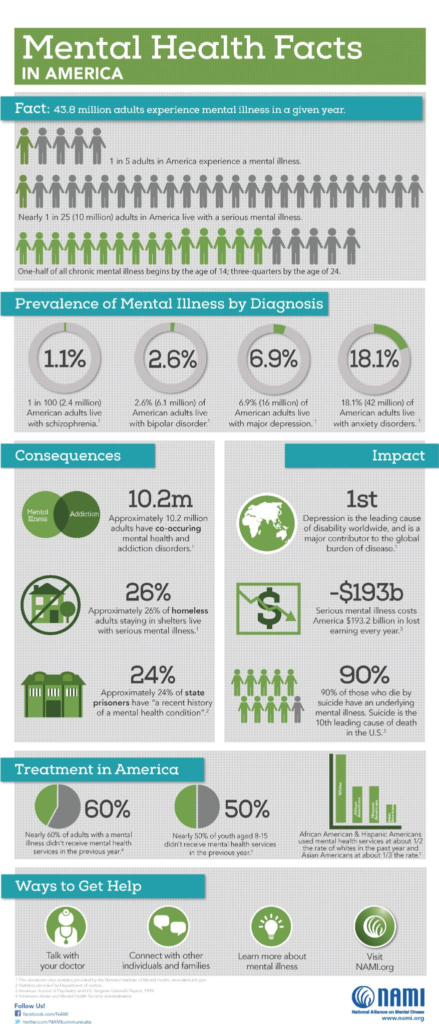The Orenda Collective is committed to an ongoing effort to ensure that everyone feels valued for their unique contributions and experiences. To do so effectively, we must not only champion diversity, equity, and inclusion (DEI) but recognize its inextricable link to mental health.
As we mark Mental Health Awareness Month this May, let’s explore this intersection between the two and how organizations can better support team well-being.
Mental Health & DEI are Closely Connected
The two issues, mental health and DEI are more closely intertwined than you may realize.
For starters, employees from diverse backgrounds face a lack of representation, discrimination, microaggressions, and unconscious bias in the workplace, and the same is true for many who battle mental health issues.
To be true advocates for equity, we must continuously develop and present new ways of elevating and building alliances with underrepresented groups, including anyone struggling with mental wellness, and encourage our communities to do the same.
There is not just a correlation between DEI and mental health, but the two have a cause-effect relationship. If someone’s race, identity, and sense of who they are, are questioned and/or used against them, it will negatively impact their mental health in a significant way. Likewise, while it may seem as though the perception of mental illness has improved in recent years, the stigma still persists—and those affected often deal with negative labeling, discrimination, ostracism, and exclusion, not dissimilar from the prejudice other marginalized groups face.
By The Numbers
-
- 43.8 million adults experience mental illness in a given year.
-
- 1 in 5 adults in the United States experience a mental illness.
-
- Nearly 1 in 25 (10 million) adults in the U.S. live with a serious mental illness.

Despite the large numbers of people affected by mental illness each year, these conditions are still much more likely to have negative stigmas attached to them than other diseases or disabilities, such as cancer, diabetes, or heart disease. The persistence of this stigma is exacerbated by factors like media stereotypes and lack of education.
Discrimination has incredibly harmful effects, whether it stems from racial prejudice or mental health stigma. Including but not limited to:
-
- Reduced hope
-
- Lower self-esteem
-
- Social isolation
-
- Increased psychiatric symptoms
-
- Difficulties with social relationships
-
- Reluctance to seek help or treatment and less likely to stay with treatment
-
- Lack of understanding by family, friends, coworkers, or others
-
- Fewer opportunities for work, school, or social activities or trouble finding housing
-
- Bullying, physical violence, or harassment
-
- Health insurance that doesn’t adequately cover treatment
-
- The belief that you’ll never succeed at certain challenges or that you can’t improve your situation.
The stress and trauma stemming from a lack of acceptance disproportionately affect members of marginalized communities, which is compounded by striking disparities in access to mental health care in our country, especially when looking at race:
-
- Asians are 51% less likely to use mental health services than white people,
-
- Latinxs are 25% less likely,
-
- and Black peoples are 21% less likely.
These gaps are the results of stigma and discrimination, lack of access to health insurance, and a shortage of providers from diverse backgrounds; Black, LatinX, and Asian psychologists – combined – account for less than 20% of the total number of psychologists in the U.S.
To be leaders in DEI, organizations have a responsibility to provide employees have the support they need to thrive, no matter how they identify or their mental health status. Creating an equitable and inclusive workplace isn’t just a checkbox item; it’s a tangible way to build a strong organizational culture that safeguards employees for the long term.
Applying DEI Strategies to Employees’ Mental Health
Mental health is a fundamental part of well-being and can be greatly impacted by DEI initiatives – or lack thereof.
We must prioritize the development of multidimensional strategies that foster equity and provide a safe space for all members of our workplace–and society. To do this, it’s crucial to create strong alliances between marginalized communities and underrepresented groups, including those with mental illnesses, to build an atmosphere where everyone feels supported and valued.
Here are a few ways to prioritize mental healthcare in the workplace:
-
- Start the conversation.
-
- Prioritize work-life balance.
-
- Create spaces for social engagement at work.
-
- Create internal groups or task forces – contact The Orenda Collective at 813-384-7630 if you’ve identified growth opportunities and are ready to put your commitment into action.
-
- Encourage employees to take time off – Not only is time off good for mental wellness but encouraging your team to take PTO can help ease vacation guilt, which prevents many from taking time off in the first place, causing burnout and resentment.
-
- Offer flexible work options – This topic is personal to the author of this piece. As someone with diagnosed depression and anxiety, having the flexibility to leave early for therapy appointments, take a mental health day, or work from home, has all improved my wellness, allowing me to be the best contributor to my team I can while making me feel valued as an individual.
-
- Build mindfulness activities into the workday – These could include going for walks, meditation areas, spending time outdoors, gratitude lists, single-tasking (the opposite of multitasking), and more.
-
- Talk openly about mental health, such as sharing on social media.
-
- Educate yourself and others – respond to misperceptions or negative comments by sharing facts and experiences.
-
- Be conscious of language – remind people that words matter. Here are a few tips to keep in mind (an excerpt from our article, 8 Ways Brands Can Build A More Inclusive Social Media Strategy):
-
-
-
- Don’t use disorders as derogatory terms. Mental health language like “PTSD,” “OCD,” “Bipolar,” and “Paranoid,” real mental disorders people possess, do not use these terms to describe everyday behaviors.
-
- Put people first – Use more than characteristics to define a person. Rather than saying “disabled person,” for example, use “a woman who is disabled” or “a woman on our sales team!
-
- Avoid generalizations.
-
- Approach inclusive language with a growth mindset – Mistakes may be made along the way, but actively trying is the best way to learn.
-
- Rule of Thumb: Ask if you aren’t sure!!
-
- For more tips to build an inclusive environment, read the rest of this article: fhttps://theorendaco.com/2023/02/building-an-inclusive-social-media-strategy.
-
-
-
- Encourage equality between physical and mental illness – draw comparisons to how they would treat someone with cancer or diabetes.
-
- Show compassion for those with mental illness.
-
- Be honest about treatment – normalize mental health treatment, just like other healthcare.
-
- Let others know when they are using stigmatizing language and presenting stories of mental illness in a stigmatizing way.
-
- Choose empowerment over shame – Don’t allow others to dictate how you view yourself!!
As employers, understanding and addressing mental health needs are crucial steps in the journey for equitable workplaces. To move from awareness to action and create lasting change, we must prioritize DEI strategy and remember that those struggling with mental health conditions deserve fairness, justice, and equitable access to opportunities, like anyone else.
Mental Health Month in May
Mental Health Awareness Month has been observed in the U.S. every year during the month of May since 1949. It was designated by Congress due to the increased number of veterans suffering from mental illnesses after returning from World War II.
This year, NAMI (The National Alliance on Mental Illness) is celebrating Mental Health Awareness Month with the More Than Enough campaign!
“It’s an opportunity for all of us to come together and remember the inherent value we each hold — no matter our diagnosis, appearance, socioeconomic status, background, or ability. We want every person out there to know that if all you did was wake up today, that’s more than enough. No matter what, you are inherently worthy of more than enough life, love, and healing. Showing up just as you are, for yourself and the people around you is more than enough.”
Putting Commitment Into Action
The Orenda Collective is dedicated to doing our part in advancing these conversations and commitments year-round. If you’ve identified growth opportunities and want to foster a mentally healthy workforce and improve DEI, contact our consultants with this form or call 813-384-7630. Let’s shatter boundaries and help people reach their full potential!
Follow @TheOrendaCo on social media for the latest research, DEI tactics, and tips all year round.
Mental Health Resources*
If you or someone you know has concerns about their mental health, there are many ways to get help. Here are a few resources to find help for yourself, a friend, or a family member:
Call 911 if you or someone you know is in immediate danger, or go to the nearest emergency room.
Text HOME to 741741
988 Suicide & Crisis Lifeline
Call or text 988; Llame al 988 (para ayuda en español).
Use Lifeline Chat on the web (English only)
The Lifeline provides 24-hour, confidential support to anyone in suicidal crisis or emotional distress.
Veterans Crisis Line
Use Veterans Crisis Chat on the web.
The Veterans Crisis Line is a free, confidential resource that connects veterans 24 hours a day, 7 days a week with a trained responder. The service is available to all veterans and those who support them, even if they are not registered with the VA or enrolled in VA healthcare.
Disaster Distress Helpline
Call or text 1-800-985-5990
The disaster distress helpline provides immediate crisis counseling for people who are experiencing emotional distress related to any natural or human-caused disaster. The helpline is free, multilingual, confidential, and available 24 hours a day, 7 days a week.
If you are worried about a friend’s social media updates, you can contact the safety teams at the social media company. They will reach out to connect the person with the help they need.
*Resources from the National Institute of Mental Health, visit https://www.nimh.nih.gov/health/find-help for more.
For additional resources, visit Taking Care of Your Own Mental Health, text “SEIZE” to 741741, or call 1-800-273-8255

